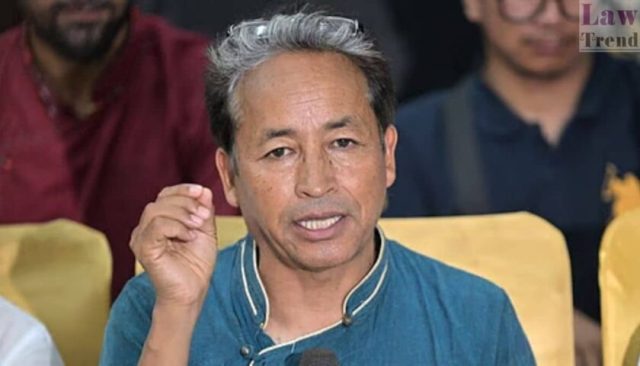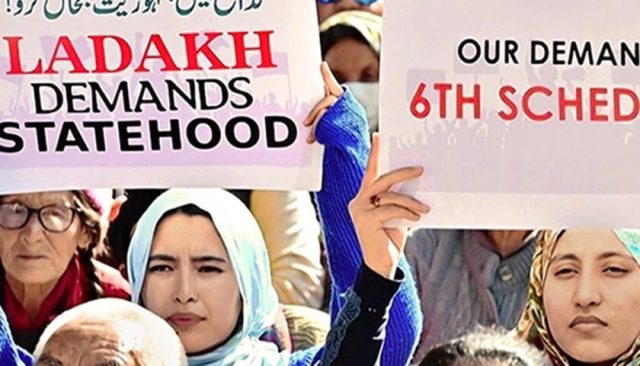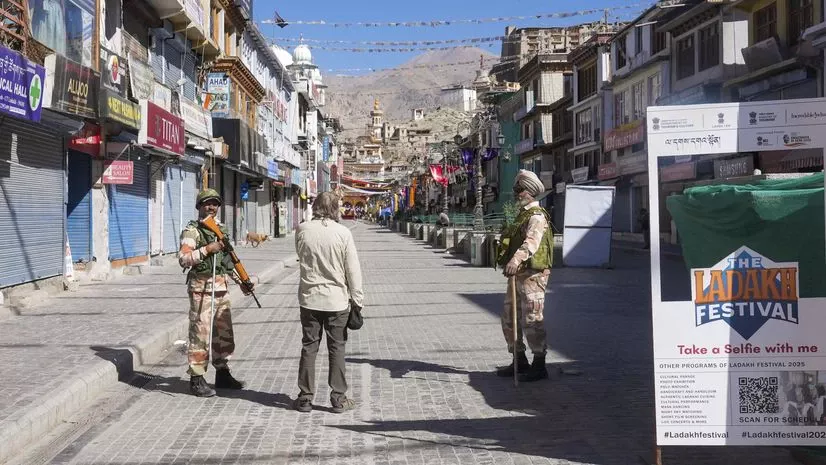Leh Apex Body to Ladakh LG: Prioritize Dialogue, Not Just Development
By: Javid Amin | 30 July 2025
A Region Demands to Be Heard — Before It’s Transformed
In the high-altitude expanse of Ladakh, where mountains tell stories older than modern India, a new chapter of politics and protest is unfolding. The Leh Apex Body (LAB), in tandem with the Kargil Democratic Alliance (KDA), has made a strong appeal to newly appointed Lt Governor Kavinder Gupta: Listen first, invest later.
As Ladakh stands on the cusp of potential large-scale development, local leaders are demanding political dignity, environmental caution, and cultural respect before welcoming capital and industry into the region.
The Four-Point Agenda: Not Just Demands, But Safeguards
At the heart of the standoff is a four-point charter of demands, jointly advocated by the LAB and KDA:
-
Full Statehood for Ladakh – To enable direct legislative control and self-governance.
-
Sixth Schedule Status – Constitutional protection for the region’s tribal identity and customs.
-
Separate Public Service Commission – Ensuring local representation and autonomy in government recruitment.
-
Two Parliamentary Seats – Reflecting the region’s unique geographic and demographic profile.
These demands go far beyond administrative restructuring—they are calls for political empowerment and identity preservation in a region historically left at the margins of central policymaking.
Fragile Mountains, Fragile Balance: The Environmental Warning
LAB Co-Chairman Chering Dorjay delivered a pointed caution: “Industries must not come at the cost of Ladakh’s fragile ecosystem.”
-
Water scarcity, already worsening due to climate change, threatens both human settlements and traditional agriculture.
-
Unregulated land use, particularly for tourism infrastructure or mining, could destabilize ecological balances that have survived for centuries.
-
The absence of a Sixth Schedule or regional safeguards could allow unchecked commercial exploitation, especially by external investors unfamiliar with Ladakh’s limits.
Dorjay urged the new LG to first understand Ladakh’s terrain—both political and physical—before courting outside investments.
Stalled Promises, Mounting Frustration
Adding to the tension is the repeated postponement of crucial talks with the Ministry of Home Affairs (MHA). Local leaders say that commitments for dialogue have gone unmet, deepening mistrust and stirring grassroots agitation.
What was once cautious optimism post-Union Territory status has turned into growing unrest, particularly in Kargil, where demonstrations have intensified over time.
Pause for Peace: Respecting the Dalai Lama’s Visit
In a show of restraint, the LAB has paused its protest activities during the Ladakh visit of His Holiness the Dalai Lama, underscoring the deep spiritual and cultural reverence Ladakhis hold for the Tibetan leader.
However, leaders hinted that mass mobilization could resume once the visit concludes, especially if the government continues delaying a meaningful dialogue.
Not Just Development—Representation and Rights Must Come First
This isn’t a knee-jerk reaction against progress. It’s a call for responsible, inclusive, and ecologically sustainable development, guided by the people who’ve lived and preserved Ladakh’s unique identity for generations.
For Lt Governor Kavinder Gupta, the path forward must be one of consensus, not imposition. Engaging with the LAB, KDA, student unions, monks, traders, and civil society groups isn’t just politically wise—it’s constitutionally and morally necessary.
Final Word: Don’t Mistake Silence for Consent
Ladakh may be remote, but its voice is growing louder by the day. From Leh to Kargil, the message is clear: Before roads and factories, lay the foundations of trust. Before investment, invest in the people.
The Centre has an opportunity to reset the equation—not through top-down policy, but through genuine partnership. As Dorjay said, “Understanding Ladakh is the first step. The rest will follow.”




